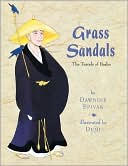Category Books
- Fiction Books & Literature
- Graphic Novels
- Horror
- Mystery & Crime
- Poetry
- Romance Books
- Science Fiction & Fantasy
- Thrillers
- Westerns
- Ages 0-2
- Ages 3-5
- Ages 6-8
- Ages 9-12
- Teens
- Children's Books
- African Americans
- Antiques & Collectibles
- Art, Architecture & Photography
- Bibles & Bible Studies
- Biography
- Business Books
- Christianity
- Computer Books & Technology Books
- Cookbooks, Food & Wine
- Crafts & Hobbies Books
- Education & Teaching
- Engineering
- Entertainment
- Foreign Languages
- Game Books
- Gay & Lesbian
- Health Books, Diet & Fitness Books
- History
- Home & Garden
- Humor Books
- Judaism & Judaica
- Law
- Medical Books
- New Age & Spirituality
- Nonfiction
- Parenting & Family
- Pets
- Philosophy
- Political Books & Current Events Books
- Psychology & Psychotherapy
- Reference
- Religion Books
- Science & Nature
- Self Improvement
- Sex & Relationships
- Social Sciences
- Sports & Adventure
- Study Guides & Test Prep
- Travel
- True Crime
- Weddings
- Women's Studies
Grass Sandals: The Travels of Basho »

Authors: Dawnine Spivak, Demi
ISBN-13: 9781442409361, ISBN-10: 1442409363
Format: Paperback
Publisher: Simon & Schuster Children's Publishing
Date Published: November 2009
Edition: (Non-applicable)
Author Biography: Dawnine Spivak
Dawnine Spivak is living and writing in Vermont. She lives in rented farmhouses where old maples line the dirt road, near violet mountains where cold and poverty protect the beauty of the land. She has taught the Japanese novel and poetry at Hobart and William Smith Colleges. Presently Dawnine teaches literature at Sterling College and was a recent member of the Vermont Anti-Hunger Corps.
Demi is the award-winning creator of numerous books for children, including The Empty Pot, Buddha, The Dalai Lama, The Legend of Saint Nicholas, Gandhi, which was named a New York Times Best Illustrated Book and received an Oppenheim Toy Portfolio Platinum Award, and Muhammad, which was named a Kirkus Editors' Choice selection, a Booklist Editors' Choice selection, one of the Booklist Top Ten Religion Books for Youth, and a Book Links "Lasting Connections" selection, and was cited in a Publishers Weekly starred review as a "timely, exceptionally handsome biography [that] serves as an excellent introduction to Islam." Demi lives in Carnation, Washington.
Book Synopsis
The story of a modest man and the art he created
Basho, perhaps the greatest of Japanese haiku poets, was a man of ultimate simplicity. He loved his homeland and spent much of his later life walking its length and breadth carrying with him the simplest of belongings. It was during these travels that Basho was often inspired to write his haiku. In this stunning book Dawnine Spivak describes some of Basho's many experiences as he traveled throughout Japan and, on each spread, offers a haiku by Basho that may have been inspired by that experience. On each spread, as well, appears the Japanese character for a word that arises from both the haiku and the story. This is a book that can be used in a number of ways: as a story of an unusual man; as a book about the inspiration of art; and as a book about the beauty of language and the world around us.
Publishers Weekly
Worlds away from the typical, adventure-filled road trip, this travelogue traces the virtually eventless wanderings of Basho, Japan's beloved 17th-century haiku master. The story seems informed by a traditional Japanese aesthetic ideal, utterly (perhaps almost unnervingly) simple and attentively sensory. The account of Basho's travels links a crisply imagistic series of his poems and evokes a joyfully austere life, lived in the present moment and in close relation to the natural world. But first-time author Spivak's plain, descriptive narrative seems pedestrian and detached compared to the haiku, as when she tells the reader that "he heard a frog leap into a pond" to introduce a famous haiku that rings with the sound itself: "old and quiet pond/ suddenly a frog plops in/ a deep water sound." Demi's customary Asian scenes take the form of porcelain-clear, colored inks brushed on pale fiber-striated paper. A single kanji (such as for "rain," "moon" or "friend") accompanies each spread, and a map shows where Basho traveled. The book may serve the function of introducing Basho's haiku to new readers, but such poems, solid and perfect as worn river rocks, gain little from the trappings of text and art. Ages 6-9. (Apr.)
Table of Contents
Subjects
 Asian Poetry
Asian Poetry  Japanese Poetry
Japanese PoetryPoetry
 Japanese Poetry
Japanese Poetry  Haiku -> Translations into English
Haiku -> Translations into EnglishPoetry
 Japanese Poetry
Japanese Poetry  Japanese poetry -> Edo period, 1600 - 1868
Japanese poetry -> Edo period, 1600 - 1868Ages 6-8
 See All Subjects
See All Subjects  Games & Activities
Games & ActivitiesAges 6-8
 See All Subjects
See All Subjects  Social Studies
Social StudiesAges 9-12
 See All Subjects
See All Subjects  Games & Activities
Games & ActivitiesAges 9-12
 See All Subjects
See All Subjects  Social Studies
Social StudiesTravel
 Asia
Asia  Japan - Travel
Japan - TravelTravel
 Essays & Descriptions
Essays & Descriptions  Asia - Travel Essays & Descriptions
Asia - Travel Essays & DescriptionsFiction Books & Literature
 Poetry
Poetry  Asian Poetry
Asian PoetryFiction Books & Literature
 Poetry
Poetry  Japanese Poetry
Japanese Poetry
